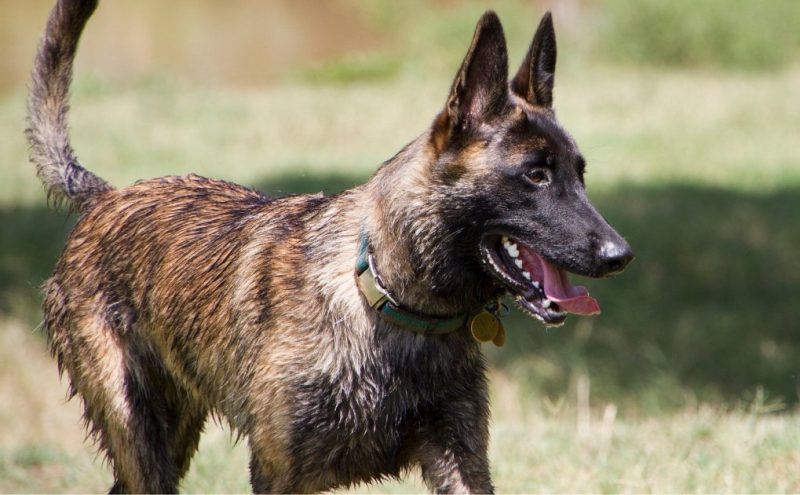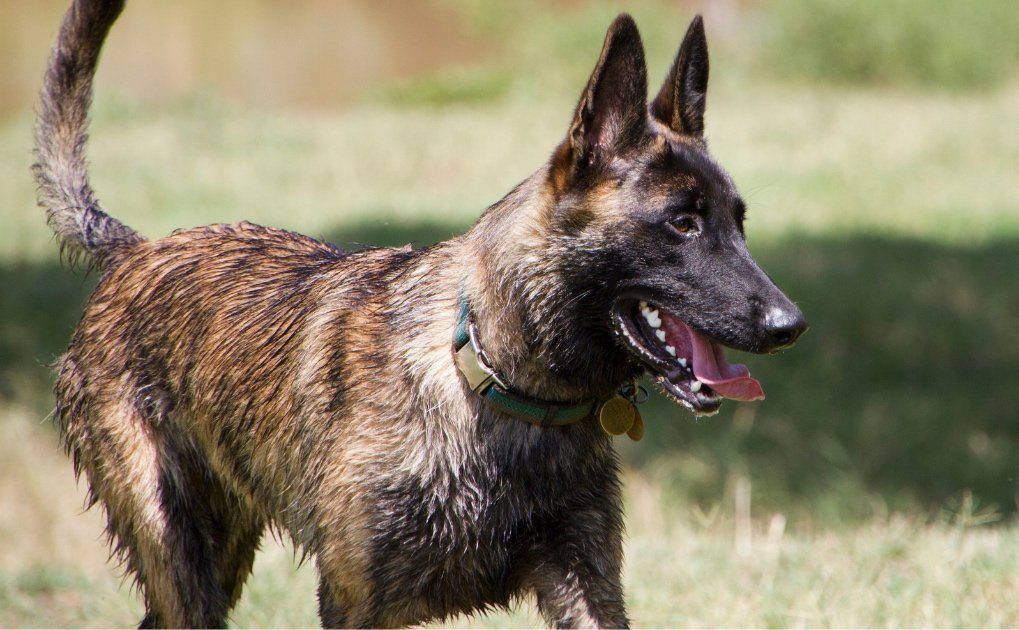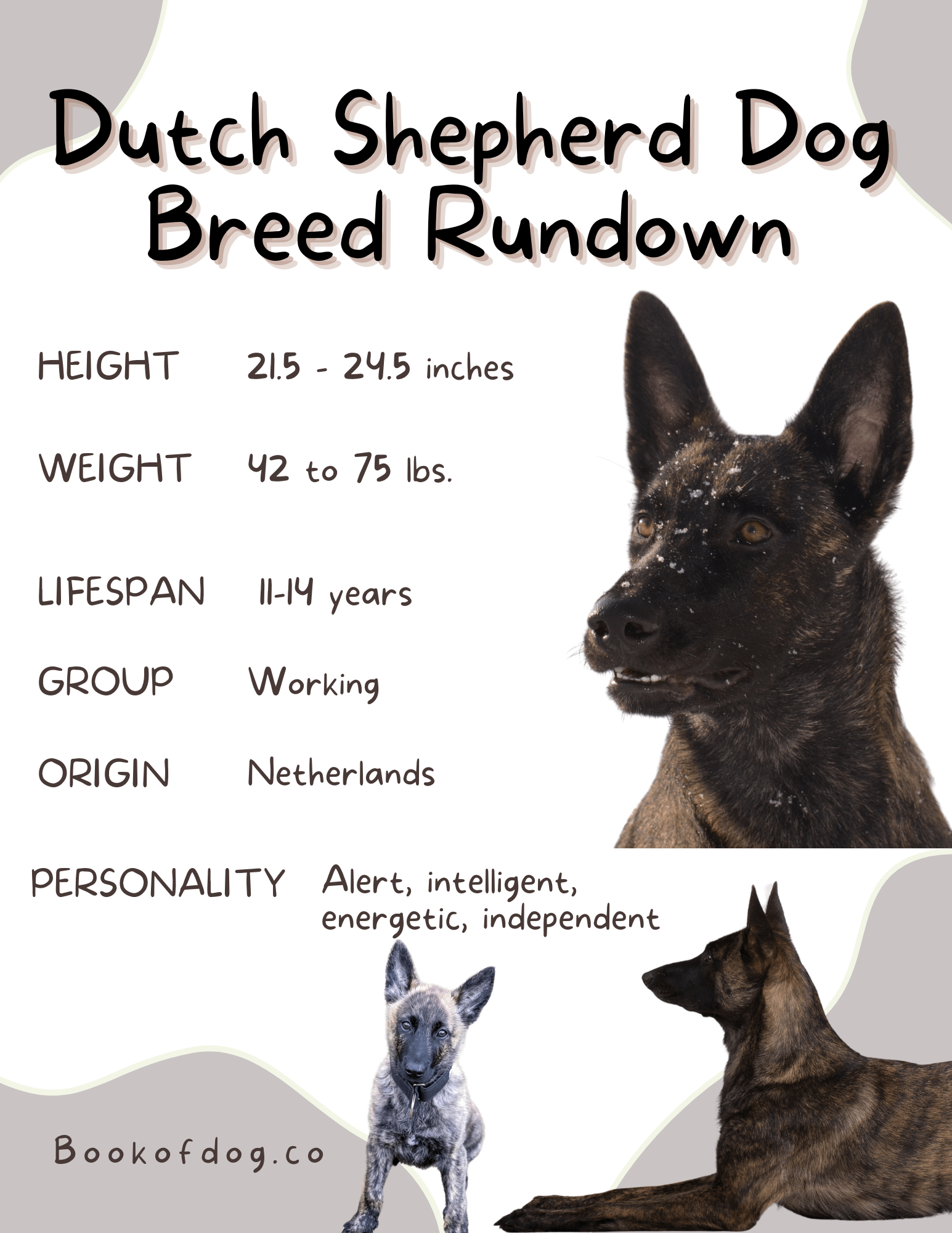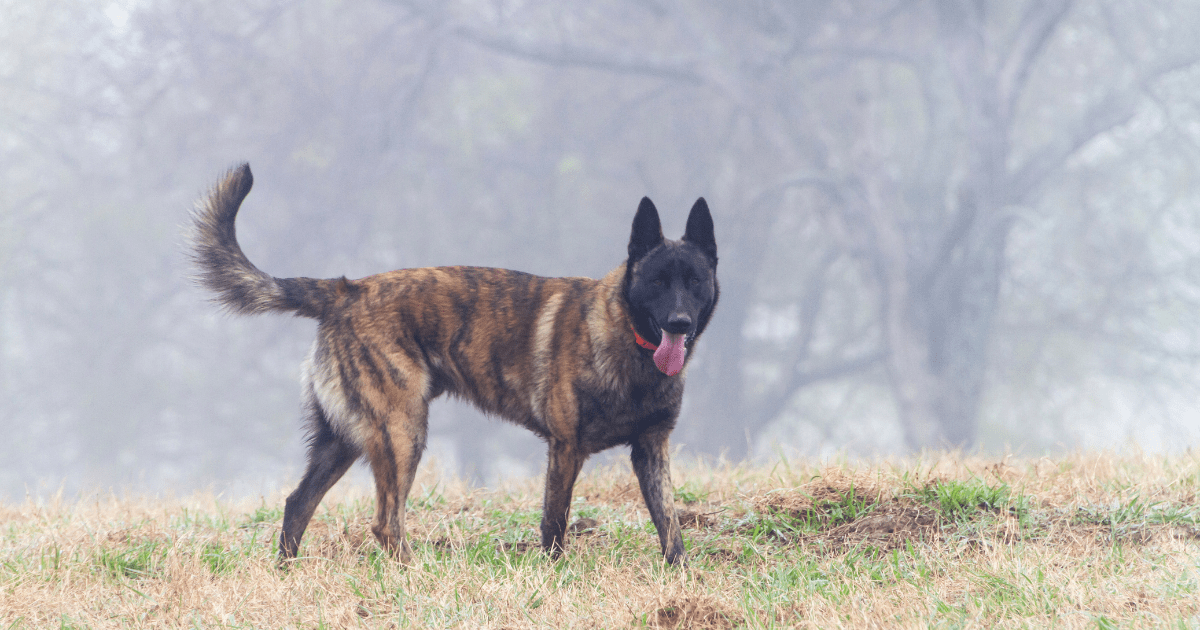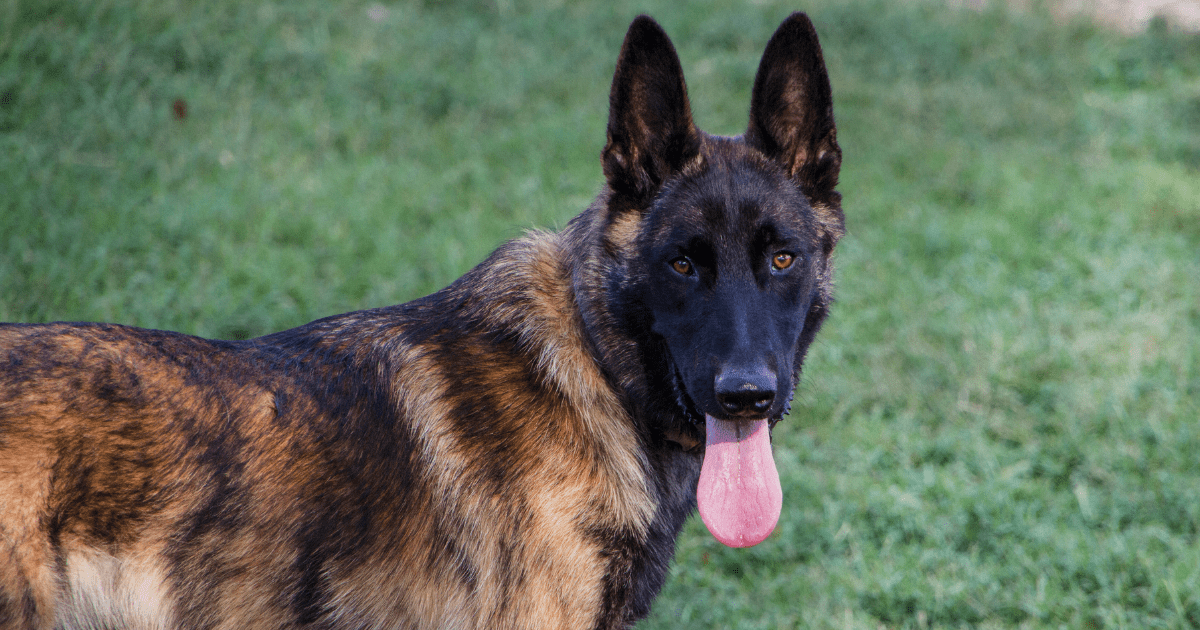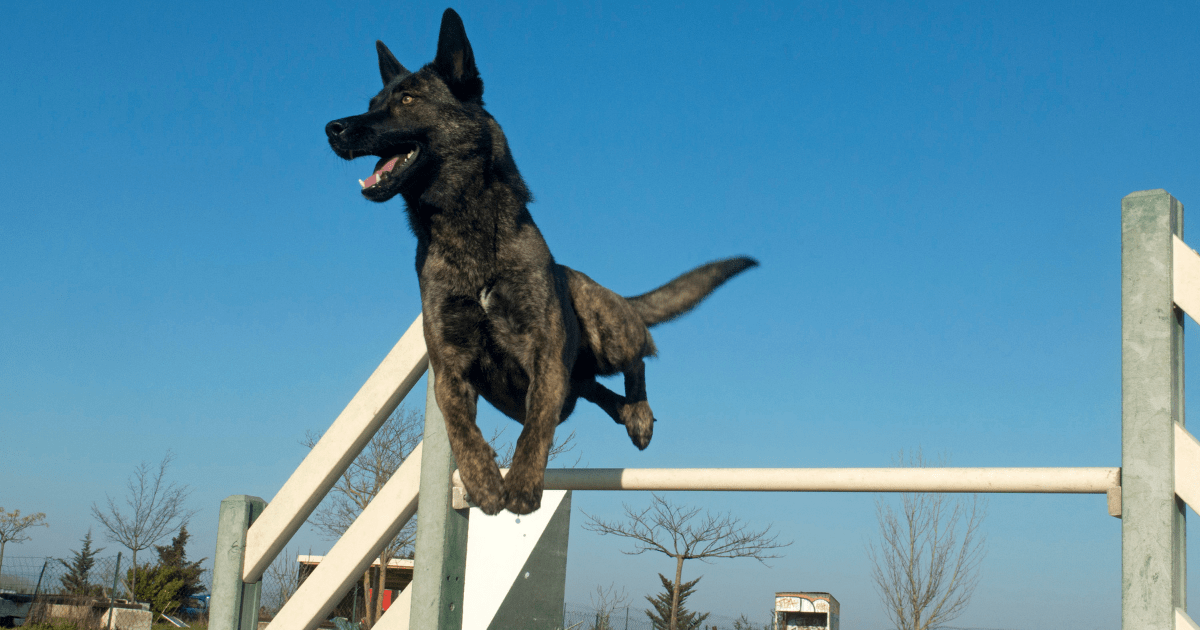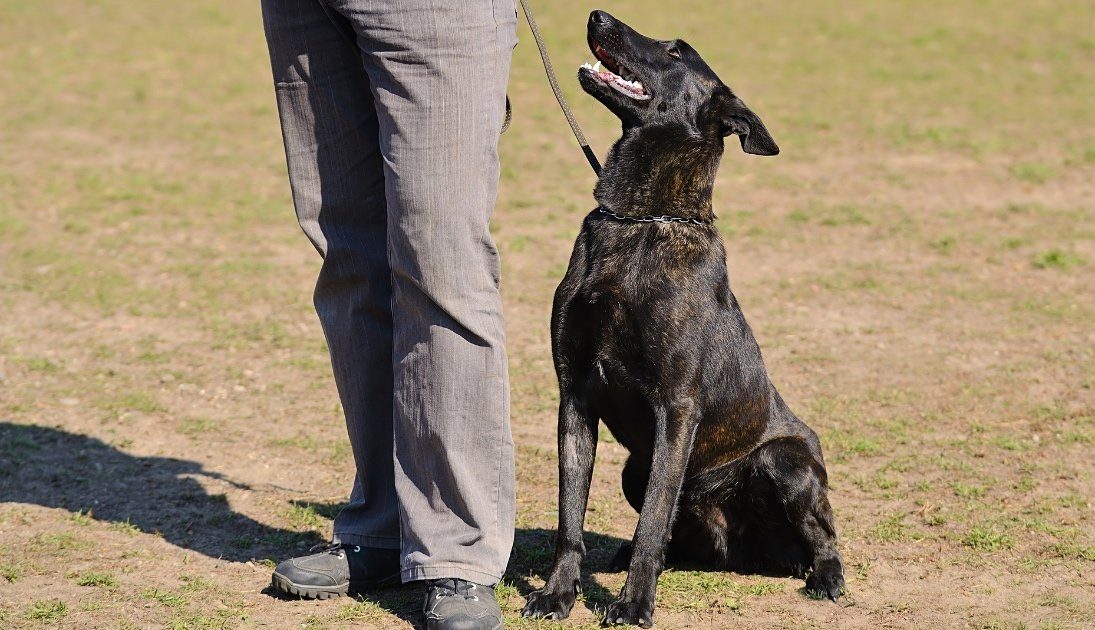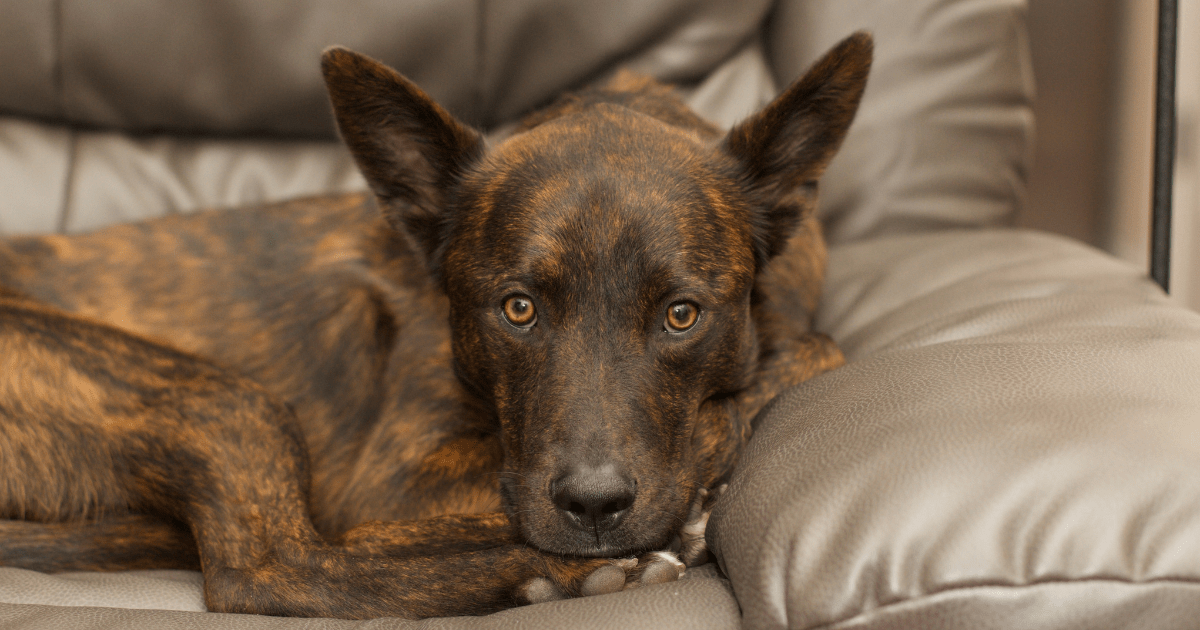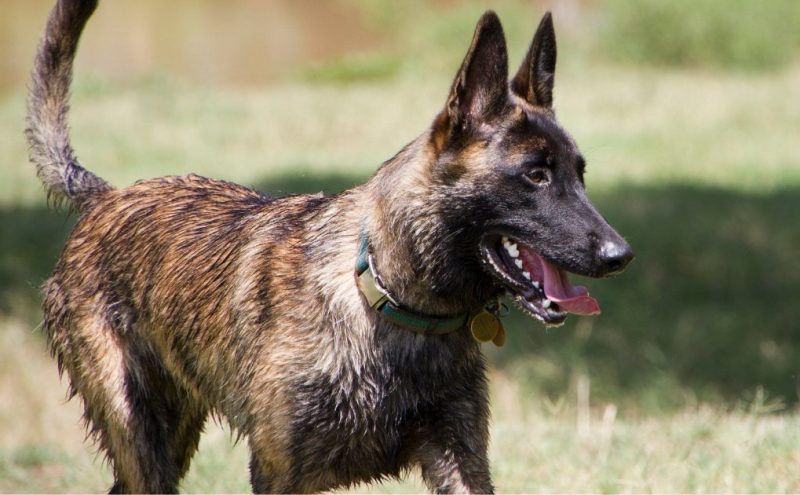
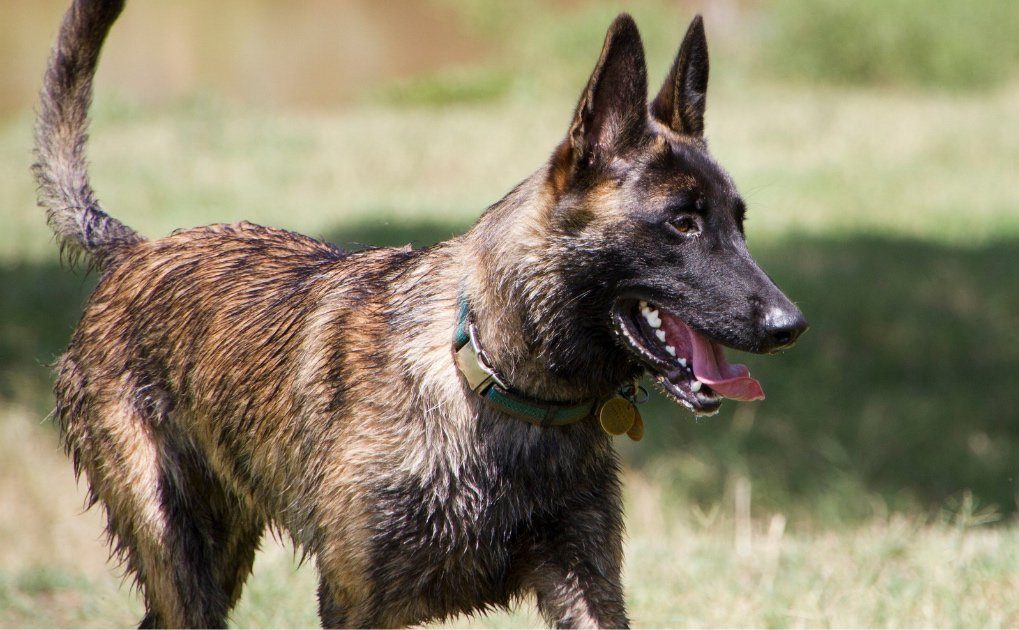

The Dutch Shepherd dog breed is an intelligent, athletic working dog that often flies under the radar because it’s an uncommon breed. These smart pups make excellent guard dogs and often work in search and rescue, police forces, or other protection jobs. With their pointed ears and shepherd heritage, Dutch Shepherds (nicknamed Dutchies) are often confused for the more common Belgian Malinois or German Shepherd Dog. However, their distinct striped coats and unique personalities distinguish Dutch Shepherds from other shepherd breeds. Dutch Shepherds are also one of the longer-living guard dogs as they tend to have few health problems compared to other large breeds. Read on to learn more about this intelligent breed.
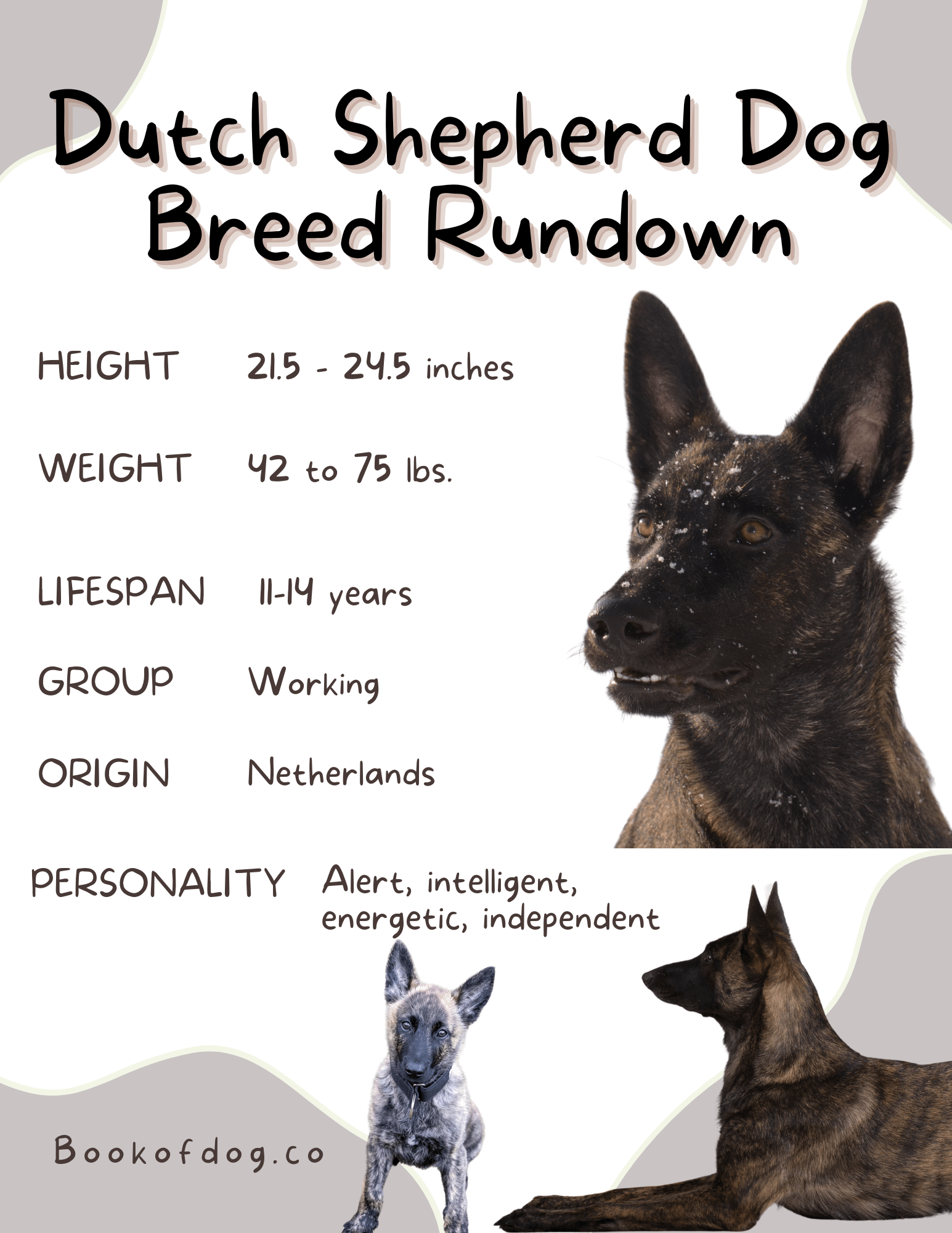
-
Height: 21.5 inches to 24.5 inches
-
Weight: 42 to 75 lbs.
-
Lifespan: 11 to 14 years
-
Origin: Netherlands
-
Personality: The Dutch Shepherd is a smart, energetic herding dog who enjoys having a job to do. These athletic pups thrive in dog sports and have a lot of stamina. Dutch Shepherds have natural protective instincts, which makes them popular as guard dogs.
Dutch Shepherd Appearance
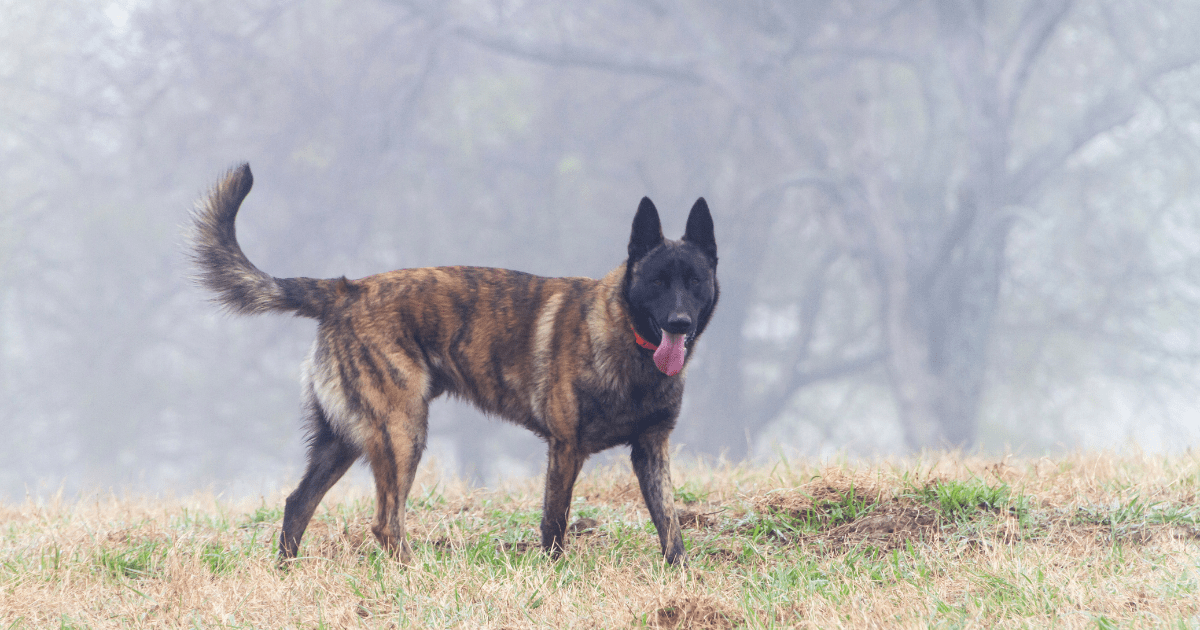
The first thing most people notice about the Dutch Shepherd dog is its tiger stripes. These lean, muscular shepherd dogs have brindle coat patterns, with striped patterns in silver or gold with black. Dutchies are medium to large in size and have an athletic appearance.
Dutch Shepherds’ coats can come in three different lengths, including short, long, or rough-haired. All varieties have a wooly undercoat and an outer coat. Rough-coated Dutchies have a dense, harsh outer coat similar to a terrier and a wooly undercoat. Long-haired Dutch Shepherds have long, straight fur and a wooly undercoat. Short-haired Dutchies have double coats as well. Short coats are the most common variety of Dutch Shepherds.
Dutch Shepherds have an alert appearance, with triangular erect ears, almond-shaped eyes, wedge-shaped heads, and long tails that may be slightly curved. They move easily and are naturally agile dogs.
Dutch Shepherd History
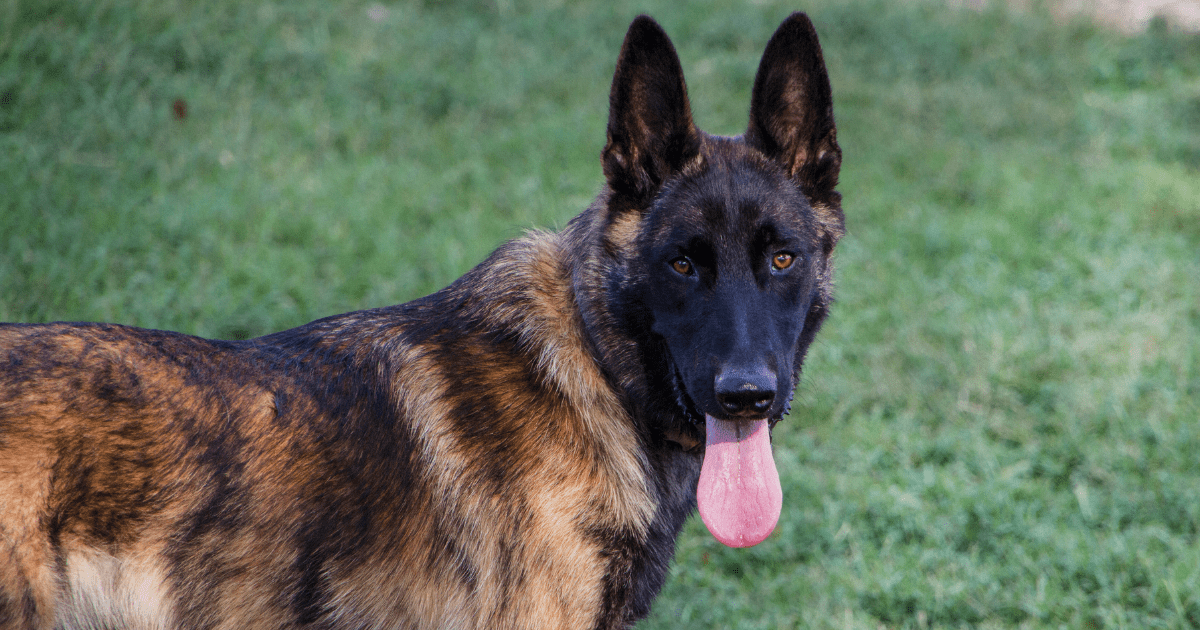
The Dutch Shepherd dog was developed in the Netherlands to help farmers with herding, droving, and guarding their flocks and livestock. Dutch farmers often had flocks of sheep, and the Dutch Shepherd dog was used to keep the flocks in their desired locations. Dutch shepherds were bred for their functionality and have the stamina to run all day to fulfill their farm duties.
Although sheep farming became less common in the Netherlands in the 20th century, the Dutch Shepherds proved themselves to be quick learners and excellent dogs for obedience, agility, police and protection work, military work, tracking, search and rescue, and guide dogs for the blind. They are also wonderful pets and companions for active households who can keep up with their high needs for exercise and mental stimulation.
Dutch Shepherd Personality
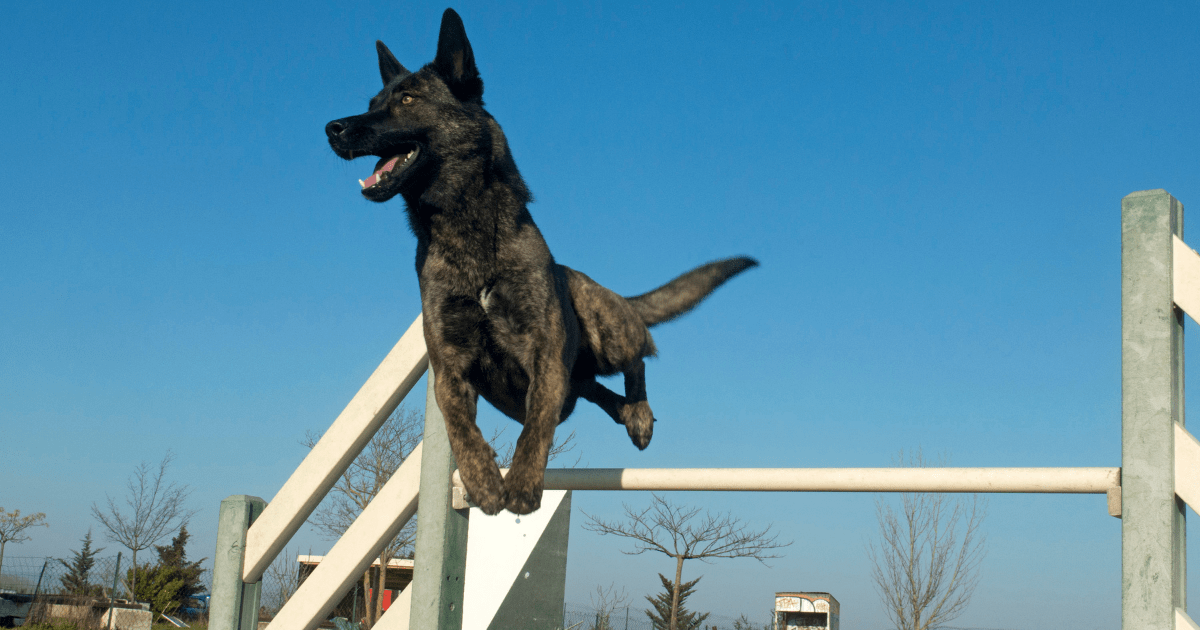
The Dutch Shepherd dog has a smart, alert personality and learns quickly. These active pups enjoy having jobs or sports to do and thrive in active households. Dutchies are herding dogs that can exhibit some typical herding behaviors, such as nipping at heels or trying to “herd” children.
Dutch Shepherds are loyal and protective and can be excellent guard dogs. They require a high level of mental and physical activity, so they are only suited to owners who plan to do lifelong training and activities together. These active dogs thrive with pet parents who can give them enough physical exercise and mental stimulation.
Dutch Shepherds are known to have an independent streak and can be a bit stubborn at times. The typical Dutch Shepherd has endless energy and can be the perfect partner for hiking, running, and outdoor sports. Their athletic nature makes them excel at dog sports like agility, herding, and search and rescue work.
Related Post: Top 10 Best Guard Dog Breeds
Training Dutch Shepherd Dogs
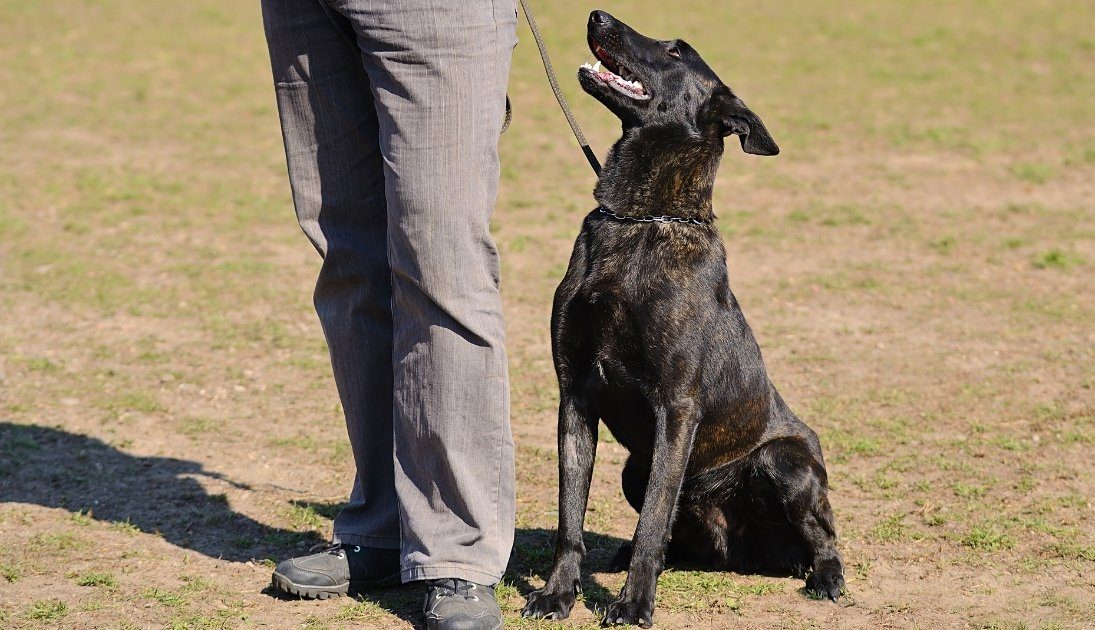
Dutch Shepherds require ongoing training to stay happy and thrive in their homes. They do best with early socialization to adapt to different people, animals, and situations. They are quick learners and need guidance with obedience training to show them what is expected with positive reinforcement.
Dutch Shepherds are highly intelligent and need mental stimulation to stay happy and prevent boredom. Owners can engage their minds with puzzle toys, treat-dispensing balls, and interactive games. Having an exercise session before training can help them to release energy and focus better when training.
Dutchies enjoy mental stimulation and can learn tricks, navigate agility courses, or pick up on scent work for fun. They need a lot of daily exercise, which can be in a mix of forms – walking, running, swimming, hiking, and playtime in secure fenced areas.
A bored Dutch Shepherd can turn destructive and turn to barking, chewing, and howling. Keeping your pup busy with physical activities, training, and games can help alleviate boredom and prevent unwanted behaviors.
Famous Dutch Shepherds
Ditch Shepherds are a somewhat rare dog breed so there are not many famous Dutchies. Celebrity dog trainer Tom Davis has a Dutch Shepherd. Davis trains his dog on the Today Show and Good Morning America.
Dutch Shepherd Dog Breed Health
Dutch Shepherds are generally healthy but can be susceptible to certain health conditions, according to veterinarians, including:
-
Hip dysplasia and elbow dysplasia, which can cause joint pain and arthritis.
-
Progressive retinal atrophy, which causes a gradual deterioration of the eyes, leading to blindness.
-
Gastric dilatation-volvulus, a form of bloat that is life-threatening. With GDV, the stomach twists and cuts off blood to vital organs. Bloat requires immediate emergency surgery. There are preventive measures you can take to reduce your dog’s risk of bloat, including a procedure called gastropexy, where the stomach is tacked to the dog’s abdomen wall to prevent twisting.
Where to Get a Dutch Shepherd Dog
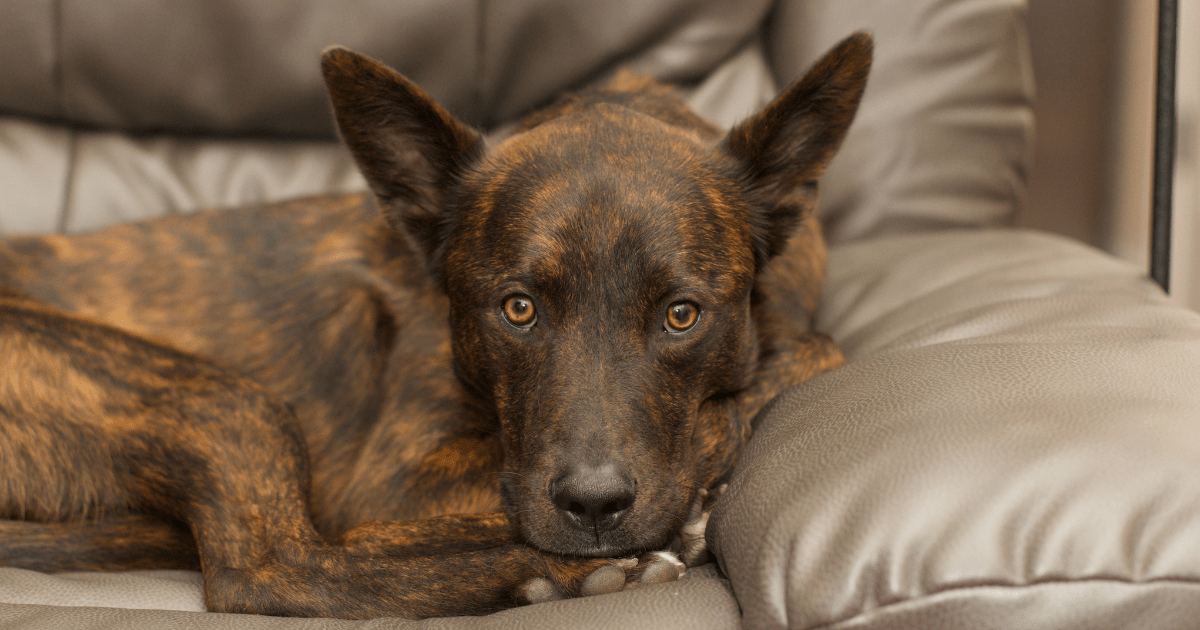
If you’d like to adopt a Dutch Shepherd puppy or adult dog, it will take some research and work as Dutchies are a rare breed. The Dutch Shepherd dog is currently in the American Kennel Club Foundation Stock Service and does not have full AKC recognition. In March 2024, the American Kennel Club’s database reflected a total of 854 Dutch Shepherds recorded in the U.S.
You can still find Dutch Shepherd dogs and puppies to adopt through local rescues and breeders. If you’re ready to adopt a Dutchie and have the bandwidth to give your pup plenty of regular exercise and mental stimulation, here are some resources to help you find your perfect pup:
-
Dutch Shepherd Dog Club of America is the UKC National Breed Club. The club has health resources and breed information to educate first-time owners on these lovable shepherds.
-
Working Dutch Shepherd Association of America has resources and events for Dutch Shepherd owners.
-
Malinois and Dutch Shepherd Rescue (MAD) has adoptable Dutch Shepherds who are in foster homes around the country.
-
Delta Force Animal Mission is a California rescue organization that has Dutch Shepherds and Belgian Malinois for adoption.
-
Midwest Working Dog Rescue has adoptable working dogs, sometimes including Dutch Shepherds.
-
Petfinder is a great resource that allows you to search for Dutch Shepherds at local rescues in your area.
-
The AKC directory of breeders for Dutch Shepherds offers resources for finding breeders in your area.
If you decide to get a Dutch Shepherd from a breeder, ask Dutch Shepherd owners for recommendations. Also, check out the breed clubs and resources listed above and ask them for breeder recommendations. Sites like Reddit have forums for Dutch Shepherd owners) where you can get advice from Dutch Shepherd owners.
Never order a dog through delivery without visiting the breeder. Go visit breeders and see what kind of living conditions the animals are in. Also, ask lots of questions about the personalities of their lines. Understand the breeder’s goals for the breed and how they select their breeding stock. Inquire about what health screenings have been performed on both parents (hips, elbows, eyes, heart, and genetic diseases).
Learn about the breeder’s approach to socializing and enriching the puppies. See what kind of support a breeder offers after adoption.
There are many wonderful Dutch Shepherd puppies and adult dogs in rescues who are up for adoption. Once you decide on a dog, check out our 10 Tips to Prepare Before Adopting a Dog for a checklist of items to assemble before your big day.
If you need recommendations for dog gear to make your new dog’s life easier and happier, check out our Top Dog Gear Recs Based on Experience.
Related Posts: 10 Best Guard Dogs for Women, 10 Best Guard Dogs for Apartments
